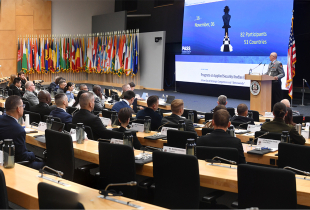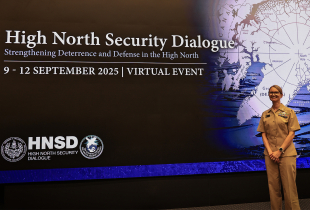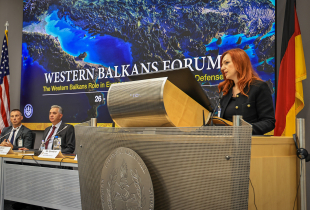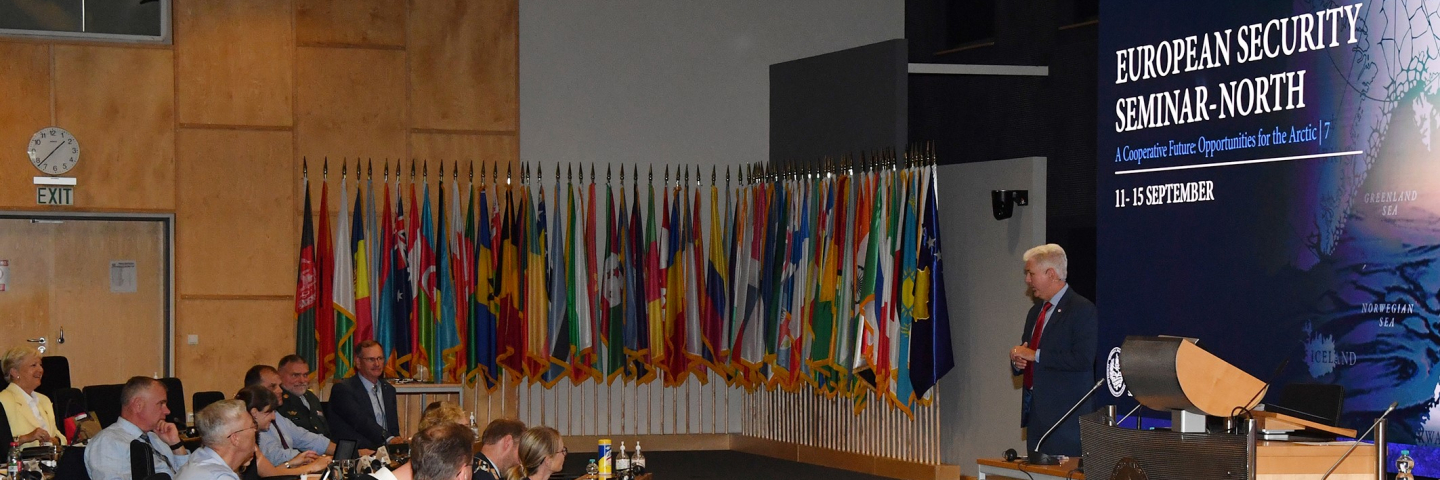
European Security Seminar-North Concludes Week-Long Seminar on Arctic Security
The George C. Marshall European Center for Security Studies and the Ted Stevens Center for Arctic Security Studies’ co-hosted European Security Seminar-North concluded a comprehensive week-long seminar, held Sep. 11-15 on the Marshall Center campus in Garmisch-Partenkirchen, in which more than 50 security practitioners, policymakers and academic experts met to discuss important challenges and opportunities for the European High North and broader Arctic region. ESS-N aims to strengthen cooperative networks, enable dialogue and enhance our mutual understanding of the region. Representing 14 nations, this year’s speakers and participants were challenged to chart a productive course ahead by addressing common challenges spanning the security spectrum.
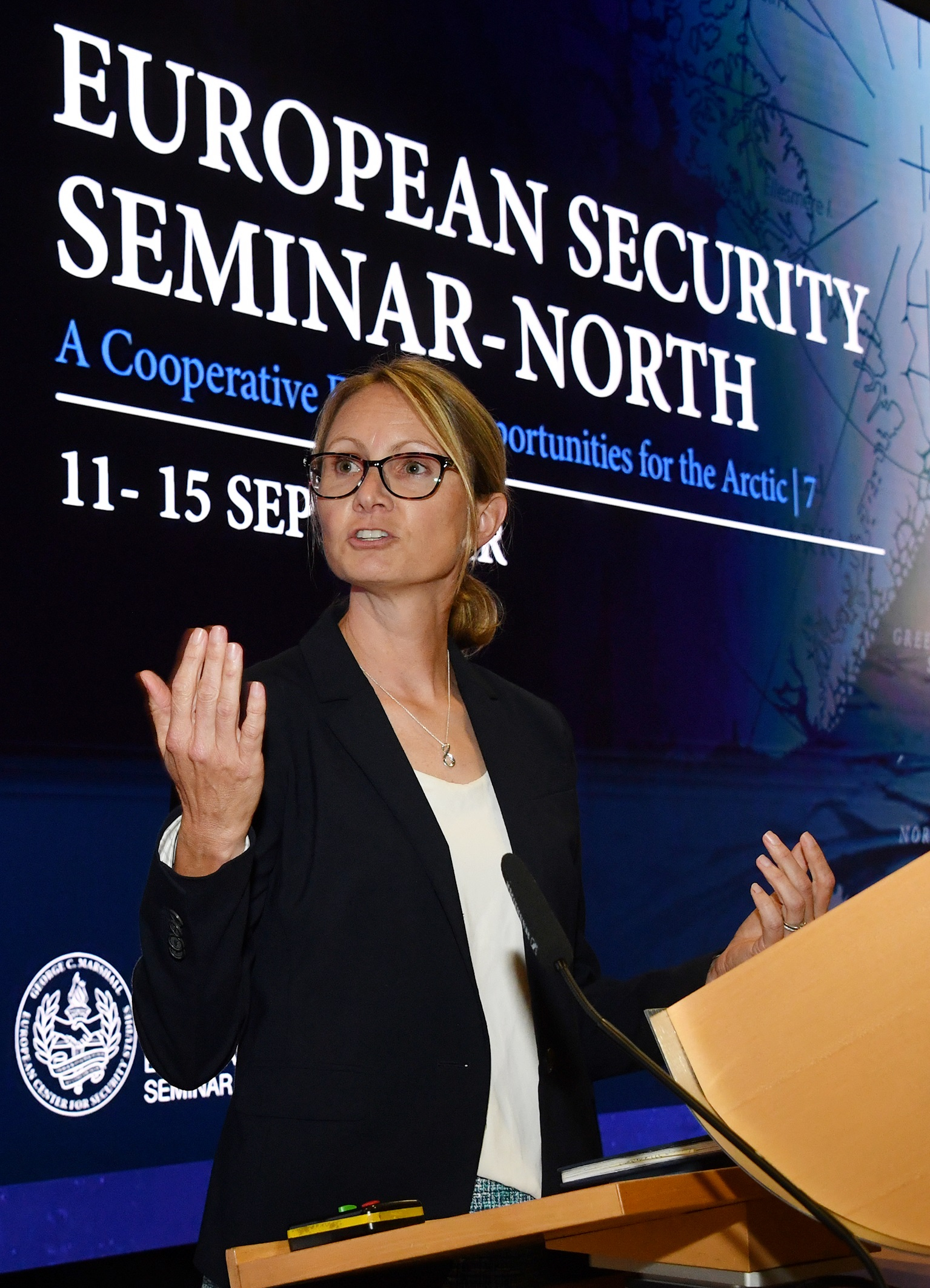
In its sixth iteration, the seminar built upon last year’s ESS-N discussions examining the implications of Russia’s invasion of Ukraine on the Arctic region. Through high level speakers and extensive seminar discussions amongst subject matter experts, this year’s seminar sought to better understand strategic drivers, explore security trends, and develop actionable recommendations to strengthen cooperation and improve regional security and stability. ESS-N brings together Arctic nations and like-minded stakeholders, this year welcoming notable German Arctic experts, including the German Foreign Office Head of Arctic Policy Division, Dr. Franziska Hagedorn; the Director of the German Arctic Office of the Alfred-Wegener-Institute for Polar Research, Dr. Volker Rachold; as well as Dr. Michael Paul from the German Institute for International and Security Affairs, who has published extensively on Arctic security affairs.
In his opening remarks, retired Maj. Gen. Barre Seguin, Director of the Marshall Center, highlighted the importance of advancing the mutual understanding of like-minded actors in the Arctic, thus reinforcing the capacity for addressing emerging regional security challenges.
Retired Maj. Gen. Randy “Church” Kee, Senior Advisor of TSC, urged vigilance in monitoring the Arctic Basin. “Fortune favors those who keep a weathered eye” on the Arctic Basin and the changes occurring, he said. He highlighted the anticipated shift towards an ice-free season across the Central Arctic Basin by 2050, "heralding both new opportunities and security concerns in the region.”
Warming four times greater than the average global rate, the Arctic region is experiencing dramatic impacts from climate change. This warming trend has significant global implications, in addition to causing immense local and regional challenges.
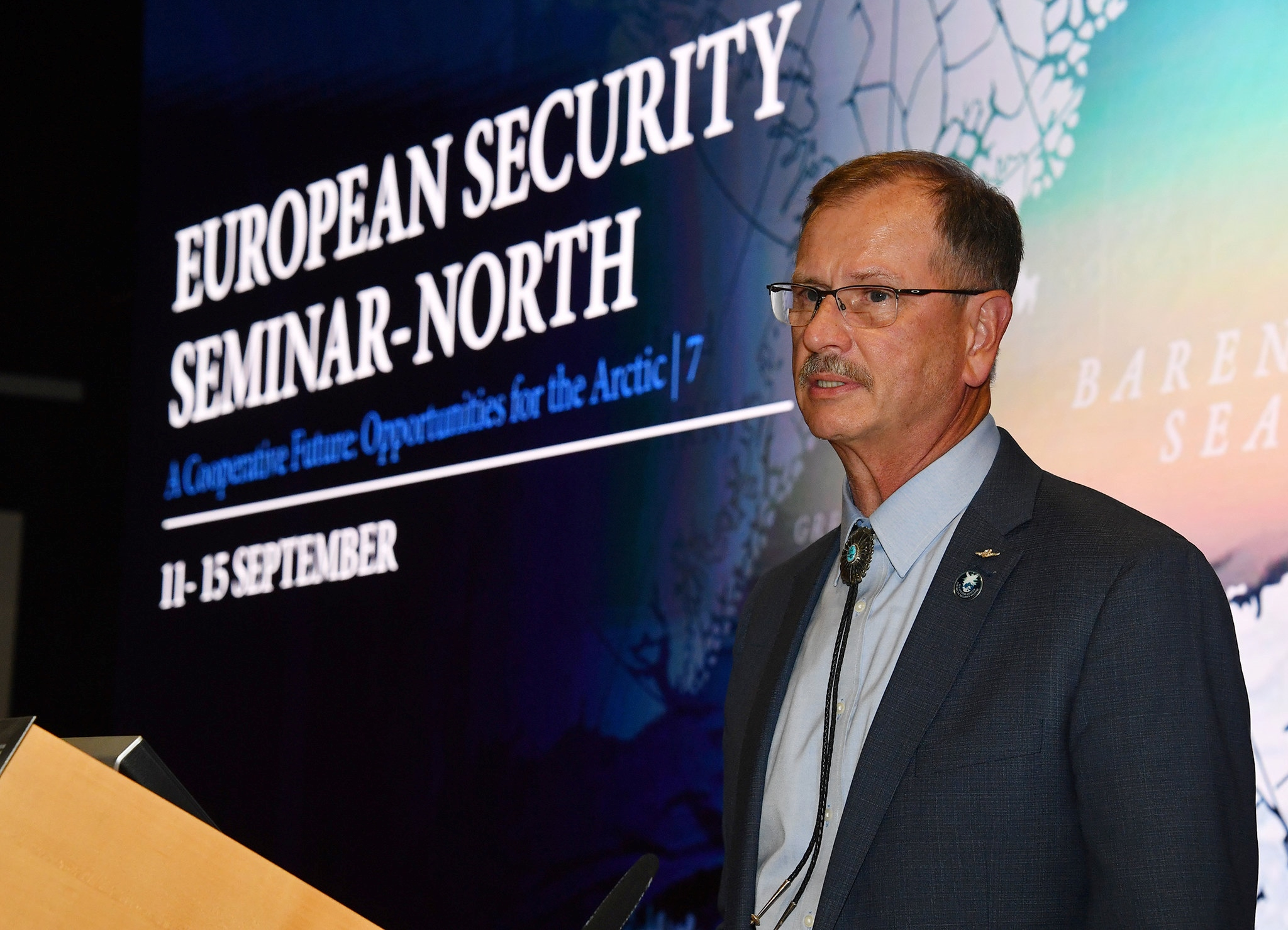
“Although much attention has been given to the increased accessibility of the region and its economic potential, the seminar also addressed the inherent challenges emerging from the climate-security nexus,” noted Cmdr. Rachael Gosnell, the Program Director.
Vice Adm. Daniel Dwyer, Commander of Joint Force Command – Norfolk and U.S. Second Fleet, said, “As the effects of climate change become more pronounced and apparent, the Arctic will become an increasingly important area; NATO, and JFCNF are committed to maintaining the security of the region, safeguarding Alliance security, promoting dialogue and minimizing tensions. While Russia continues to increase its’ military footprint in the Arctic, NATO working with our partners, continues to invest in new defensive capabilities, conducts exercises and demonstrates our commitment to the peace, prosperity and access for all nations.”

With its vast economic potential, the Arctic attracts global interest. Anu Fredrikson, Executive Director of Arctic Frontiers, shed light on evolving perspectives regarding Arctic economic development.
“The value definition of Arctic economic development is changing from a singular profit focus to embracing sustainable development, human rights, environmental concerns, and local benefits,” Fredrikson said. “Doing business right will provide positive ripple effects on the ground, helping fight the Arctic resource paradox.”
Indeed, the seminar emphasized that economic development in the region should be aligned with international laws, mechanisms and agreements, in order to safeguard the future of the Arctic. While seeking to strengthen cooperative networks, ESS-N also examined future challenges stemming from strategic competition and militarization of the European High North and broader circum-polar Arctic.
Retired Swedish Maj. Gen. Mats Engman explained, “We are likely to witness a continuation of a competitive security environment in the Arctic. Issues of grey zone aggression, underwater domain awareness and Russia-China cooperation are becoming more prominent. To mitigate some of those effects, I believe the Arctic 7 together with non-Arctic, interested nations, should re-examine Arctic governance, find innovative ways of pooling resources and initiate a research project on risk reduction, to include the development of a series of Total Defense exercises.”
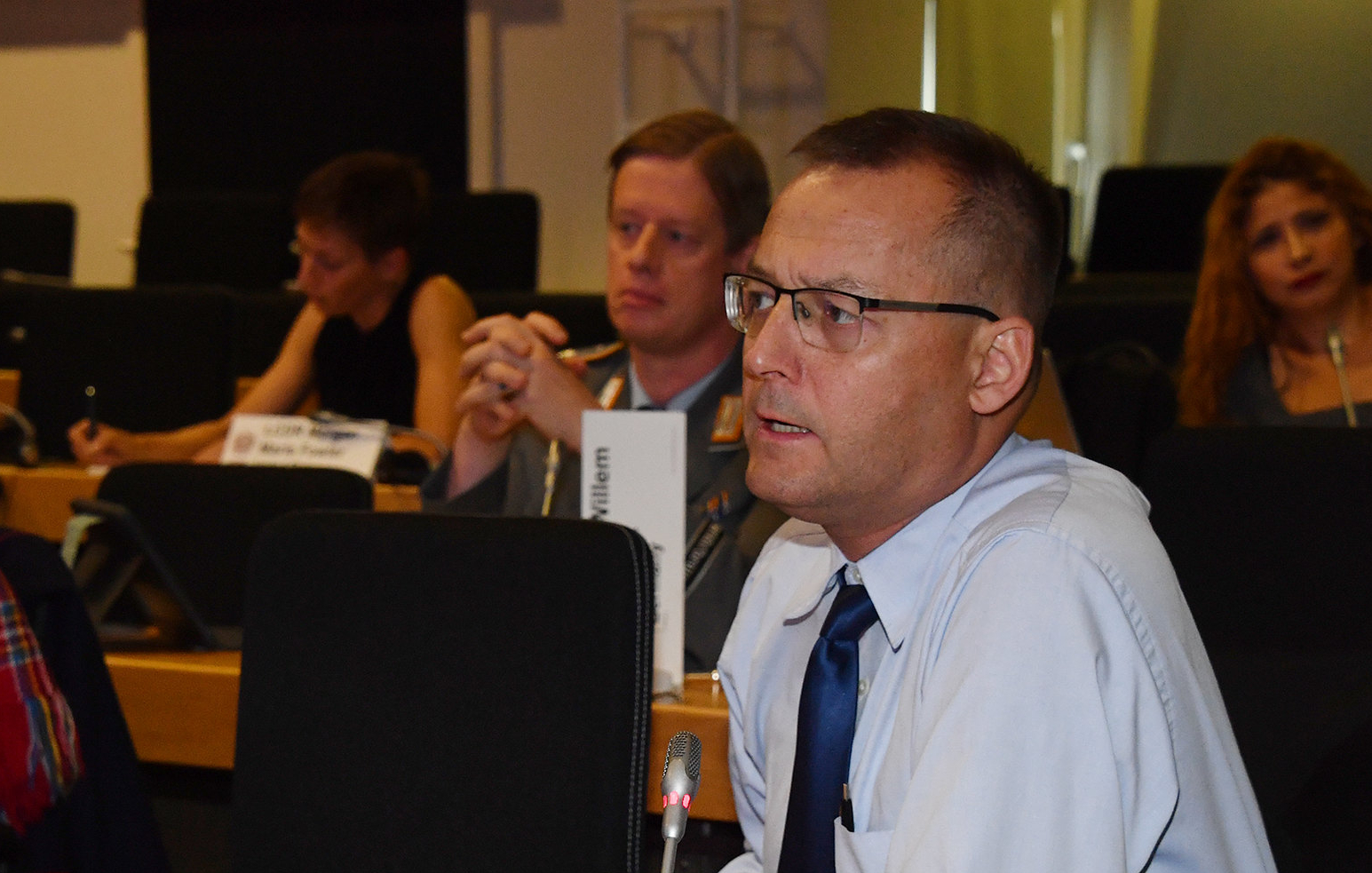
In concluding remarks, retired Brig. Gen. Rolf Wagner, the German Deputy Director of the Marshall Center, commended the deep exchange of ideas and collaboration, remarking that the strength of the program comes from taking these reflections and new perspectives away from Garmisch-Partenkirchen and maintaining the networks established during ESS-N.
Amb. Marie-Anne Coninsx, Senior Associate Fellow at the Royal Institute for International Relations, commended ESS-N as an invaluable forum addressing the Arctic's unique security challenges, saying, “It has become the place to be, at the right time, for experts with different backgrounds to discuss and contribute to one of the key challenges for the Arctic.”
The joint planning and execution of the program by the Marshall Center and the Ted Stevens Center ensures a comprehensive approach to better understand the Arctic both as a geographical and climatic space, as well as the unique political, geophysical and socio-economic conditions of its sub-regions. A lighthouse project of cross-Regional Center collaboration under the auspices of the U.S. Department of Defense, their partnership seeks to translate the findings of its seminars into actionable recommendations for policymakers.
The George C. Marshall Center for Security Studies, founded on June 5, 1993, is a renowned international security and defense studies institute. A bilateral partnership between the U.S. and Germany, it is a lasting cooperation that promotes dialogue and understanding among the nations of North America, Europe and Eurasia. In 2023, the Marshall Center marks its 30th anniversary, re-emphasizing its commitment to carrying Marshall’s vision, an enduring legacy that continues through the security education initiatives of the Center.
